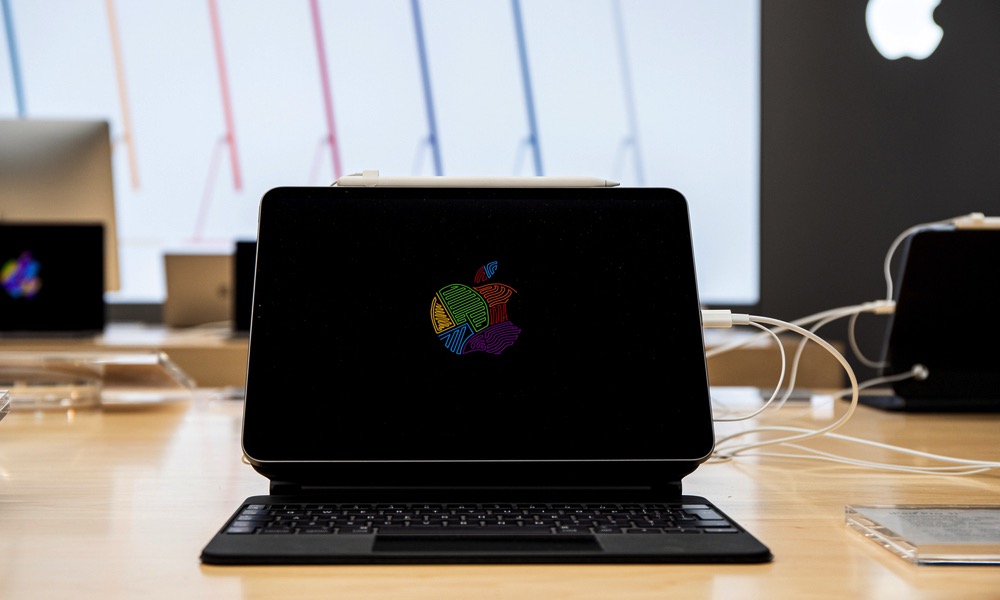Early Benchmarks Show the M1 iPad Pro Is a Quantum Leap Forward
 Credit: Rokas Tenys / Shutterstock
Credit: Rokas Tenys / Shutterstock
Toggle Dark Mode
Last month Apple shocked the tech world when it revealed that its new 2021 iPad Pro would be packing in the same insanely powerful M1 chip that’s been turning the computing industry upside down, and now the first benchmarks have leaked out to show us just how big of a deal that’s going to be for Apple’s extremely popular iPad lineup.
Considering what we already know about the performance of the M1 in Apple’s MacBooks, these numbers shouldn’t come as a big surprise, but there’s something about packing this kind of power in an iPad that sort of blows the mind to even contemplate.
Many expected that the 2021 iPad Pro would stick with an A-series chip, which would most likely be the A14X, so when Apple announced that it was getting the very same chip introduced in last fall’s MacBook Air, MacBook Pro, and Mac mini, it was a clear statement that the gloves are off, and Apple’s iPad Pro can now be expected to rival the best desktop and laptop computing platforms out there.
Now, a new set of Geekbench 5 results shared by MacRumors is giving us glance into just how true this will be.
Running on an M1-equipped 12.9-inch iPad Pro, these benchmarks not only show a 50 percent improvement over last year’s iPad Pro, but also nearly identical performance to the M1 Macs released last fall.
Again, this shouldn’t be surprising to anybody except those who feared that Apple may have crippled the iPad Pro version of M1 in some way. However, if Apple was going to do that, it wouldn’t have used the “M1” chip in the first place. In fact, there’s absolutely no reason that a new A14X chip couldn’t have been just as powerful as the M1 — they’re both designed by Apple, after all — however Apple clearly used the M1 to make a point.
Since the original M1 MacBook Air already outperforms every other Mac ever made, this means that the new 2021 iPad Pro now gets to share this distinction. In other words, the latest iPad Pro models score higher than even a fully-loaded 16-inch MacBook Pro, which uses a high-end 9th-gen Intel Core i9 CPU.
M1 iPad Pro Benchmark Scores
Specifically, the 12.9-inch M1 iPad Pro clocked in with a single-core score of 1,718 and a multi-core score of 7,284.
Last year’s iPad Pro models, which use an older A-series chip, came in at 1,121 and 4,656, respectively.
By comparison, the M1 MacBook Air came in at 1,701 / 7,378, while the Core i9 16-inch MacBook Pro lagged behind at 1,091 / 6,845.
The M1 iPad Pro also offers similar graphics performance to the M1 Macs, with an average Metal score of 20,578. This works out to around 70 percent faster than last year’s iPad Pro.
Of course, the jump over the previous iPad Pro is even more significant, considering that it’s using an older A12-series chip. While the iPad Air released last fall moved to the same A14 chip found in Apple’s iPhone 12 models, the iPad Pro never moved beyond the A12Z, which was a relatively minor enhancement to the 2018 A12X. Apple’s A13 chip was exclusive to the iPhone 11 lineup, and was never used in an iPad.
To be clear, despite being an older chip, the A12X/A12Z is still no slouch, and last year’s iPad Pro actually outperforms the A14-equipped iPad Air in multi-core performance, thanks to its two extra high-performance cores and four extra GPU cores. By comparison, the iPad Air comes in at a high watermark of 4,246 for multi-core performance, and around 1,585 for single-core.
Still, there’s no doubt that the two-year gap since the last time Apple made an 8-core A-series chip makes the performance leap of this year’s M1 iPad Pro even more impressive.
That said, it’s important to remember that benchmarks never tell the whole story, and there will likely be other ways in which the performance of an iPad Pro differs from that of a Mac or Windows PC — both for better and for worse, since it’s an entirely different type of device, running a unique operating system — an operating system that may not yet be able to take full advantage of all of this power due at least in part to a dearth of true “Pro” apps.






